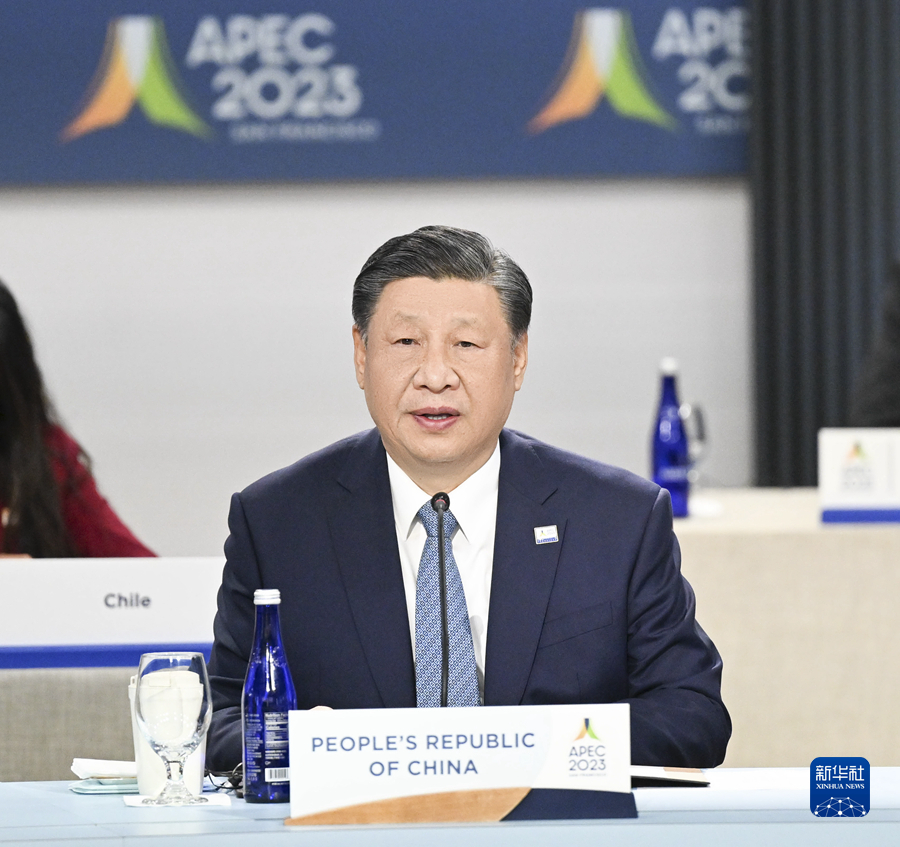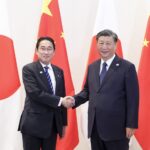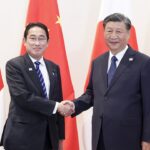Chinese President Xi Jinping put forward proposals for the Asia Pacific region to usher in another “golden 30 years,” calling on Asia-Pacific Economic Cooperation (APEC) members to commit to innovation, openness, green and inclusive development in promoting regional cooperation, as APEC’s Economic Leaders’ Meeting concluded in San Francisco on Friday.
Xi made the remarks addressing the 30th APEC Economic Leaders’ Meeting held at Moscone Center in San Francisco, stating that since the establishment of the economic leaders’ regular meeting mechanism, APEC has always stood at the global forefront of openness and development.
Chinese observers hailed President Xi’s speech as helping to guide the region’s development for a further three decades. They also noted the 2023 APEC annual conference, which featured the largely cordial summit between Xi and US President Joe Biden, offered much needed certainty to the region’s peace and stability, laying foundations for even more promising development in the future.
Xi called on APEC members to remain committed to innovation-driven development, stressed the importance of staying committed to openness in development in his speech.
The Chinese president also urged the APEC members to promote free and open trade and investment, support and strengthen the WTO (World Trade Organization)-centered multilateral trading regime, and keep global industrial and supply chains open and stable, noting the APEC members must say no to any attempt to politicize, weaponize, or impose security implications on economic and trade issues.
It is also necessary to stay committed to green development, said the Chinese president. Furthermore, Xi also called for staying committed to inclusive development that delivers benefits to all.
Noting that China will remain committed to the path of peaceful development, Xi said that Chinese modernization will bring the world more and greater opportunities for the modernization of all countries, and that he is ready to work with other APEC leaders for new success in Asia-Pacific cooperation and for another “golden 30 years” of the region.
According to the 2023 APEC Leaders’ Golden Gate Declaration, China and the US as well as more than a dozen of economies in the region, have reaffirmed their determination to “deliver a free, fair, non-discriminatory, transparent, inclusive, and predictable trade and investment environment,” and the importance of “the rules-based multilateral trading system, with the WTO at its core.”
Leaders of the 21-member grouping which accounts for nearly half of global trade, also made commitment to continuing efforts to enhance transparency and technical cooperation, push for “resilient, effective, sustainable, and open” supply chains and improved transport links, as well as efforts to fight corruption and address climate change issues, per the joint declaration.
At the end of the APEC meeting, President Joe Biden said goodbye to President Xi, Chinese Foreign Ministry spokesperson Hua Chunying wrote in a post on X, on Saturday with an image attachment of the two leaders’ close interaction, which has been one of the focal points of this year’s APEC annual conference since the very beginning.
Fernando Reyes Matta, former Chilean Ambassador to China and the Director at the Center for China Studies at Andrés Bello University, told the Global Times on Saturday that this APEC 2023 takes place at a time when the global economy is showing many problems, and it is a time to seek solutions with a lot of cooperation and shared strategies.
Matta noted that it is logical that everyone is very attentive to whatever the meeting between the leaders of the US and China within the framework of the APEC forum. If there is understanding between both parties in a world that is increasingly complex and shaken by crises such as those in Ukraine or the Middle East, it will be good, Matta noted.
“It is not about the agreement of who dominates who over the long term. These are agreements that can be achieved to coexist within the framework of the unavoidable three Cs: cooperate, compete, confront,” Matta said. “The achievements in the conversation in Bali in 2022 deserve to be followed by new agreements in San Francisco 2023. The world waits for it and needs it.”
According to recent statistics published by the Chinese Ministry of Commerce, China’s total import and export volume with APEC members exceeded $3.7 trillion, accounting for 59.7 percent of the country’s total import and export. China is the largest trading partner of 13 APEC economies.
China have proposed numerous cooperation initiatives that bring tangible benefits to the people in the region, which have been highly recognized by all parties in the region, according to the ministry.
“Today, China is a determining actor for the future not only of the Asia Pacific but of the entire planet. In other words, there is no real and definitive development of the Asia Pacific area without China, at the same time that China has a fundamental key to its own development in this region of the world. Therefore, it is absurd to believe that policies of confrontation and creation of blocs against China such as those promoted by Washington in recent years provide a good future,” Matta said.
“The past 30 years have been a golden era. In these years, the Asia-Pacific region has been the most remarkable in terms of economic growth globally. The leading roles of China and the US have been evident,” Lü Xiang, a research fellow from the Chinese Academy of Social Sciences, told the Global Times on Saturday.
The five pillars for China-US bilateral relations President Xi called on during his strategic, historic and directional summit with President Biden injects much-needed certainty to the region, Lü said.
He explained that peace and stability would continue to be key to the region’s development prospects in the next golden 30 years, and China is unwaveringly promoting this agenda.
Lü said that the level of achievement would be even more promising than the previous three decades if the relations of the two powers could remain on the right track.
Xi’s speech also pointed out that the world should stay optimistic on that Asia Pacific region and be confident of the China’s economy outlook that is the most significant driving force of the regional development, Li Haidong, a professor from the China Foreign Affairs University, told the Global Times on Saturday.
As opposed to the inclusive APEC cooperation that China has stood for, US Indo-Pacific strategy artificially creates regional divisions and camp confrontations, compelling ASEAN countries to choose sides, which has met cold shoulders from the regional nations, Wang Yiwei, director of the Institute of International Affairs at the Renmin University of China, told the Global Times on Saturday.
The current positive interactions between China and the US are still tactical for the US side, which requires us to be prepared for uncertainties, such as the test posed by the US elections next year, Wang pointed out.
We should set goals and work toward transforming the US tactical easing ties into a long-term strategic arrangement, solidify the momentum of China-US cooperation, and oppose the fragmentation in the name of de-risking, Wang further noted.
(Global Times)




